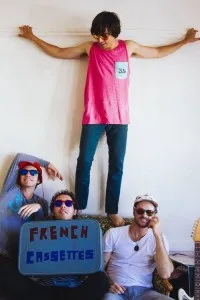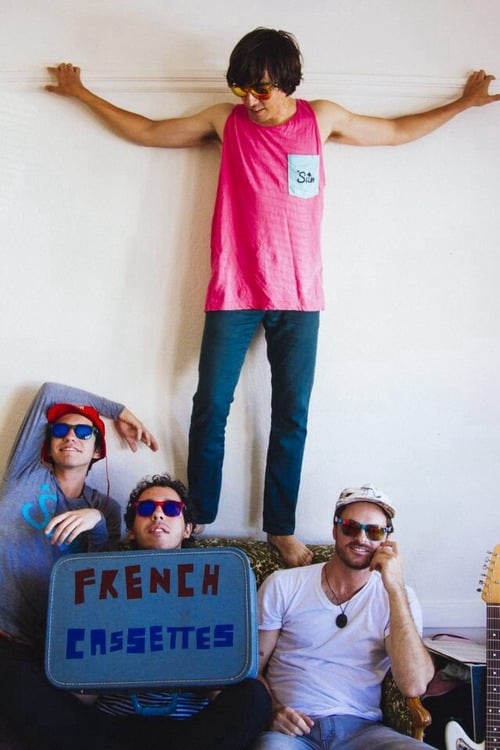
A youthful, bright aesthetic, a sound that makes you yearn for summer and the ability to get a crowd dancing with just a few riffs of their catchy tunes have garnered the French Cassettes a loyal local following in the Bay Area. We spoke with lead singer Scott Huerta about the band’s writing process, the changing music industry and his love for the San Francisco music scene. Check these guys out at the Local Band Stage at Live 105’s annual BFD music festival on June 1.
The Stanford Daily (TSD): What genre do you consider your music to be?
Scott Huerta (SH): I usually just describe it as danceable indie pop. We definitely put a lot of focus on the drumbeats. We like movement in our songs, so we usually just say danceable indie rock.
TSD: Who writes the songs, and what is your writing process?
SH: It’s usually me or Mac (guitar) who brings the song to the table, and then we’ll let everyone write their own parts. We’ve even had songs where I’ll write the verse, and then Mac writes the chorus. We’ve always just really gotten along that way. We all sit around and write our own parts basically. The last thing we write is the lyrics, actually. I usually do the melody first and then write the lyrics.
TSD: How do you come up with lyrics?
SH: I usually go for a walk. That’s where I get my best writing done. Singing the melody, I just start to sing gibberish words, whatever comes to my head. It usually means nothing at all, and so if you listen to early demos, I’m just saying nonsense. Sometimes I find something that I blurted out kind of intriguing, and then I base it off of that.
TSD: You currently have one full length album, how did that start out? Do you come up with songs and place them into an album, or do you have an idea for the arc of an album and fill it in with songs?
SH: I think we do it the way most bands do it where there’s just one song that will get you pumped about writing more songs, and that’s the beginning of the album. For us that was “Us Kids” off of “Gold Youth.” We just came together so well that we just set a goal. We wanted to have at least this many songs and no more than this many songs, which is kind of nerdy just like wanting a specific number, but that’s just how we worked it out.
TSD: Are most of your songs a result of sitting down and deciding to write a song, or does inspiration for a song come when you’re just playing around?
SH: I’ve written multiple songs just from being at my house and think[ing] about what I want to do that day. I think I want to write a song, and so I sit down long enough until I have something that I like. And I would say almost 90 percent of the time we end up using it. I have to be pushed like that. I don’t wait for inspiration because I might be waiting forever.
TSD: Who and what were your inspirations in your last album?
SH: I was inspired by bits and pieces of songs rather than just full bands. There was a chord change I liked in one of [The Dirty Projectors’] songs, and there was a drumbeat I liked from a band that I saw in San Francisco. I just hear something, and I get inspired and want to write something around that.
TSD: How has your music changed since you started playing?
SH: We decided to stop trying to write songs a certain way or to be cool. If you listen to our old songs on EPs that we don’t even allow to be on the internet… we tried really hard to sound like certain bands. This time we wanted to drop all of that and write songs that we really enjoyed for ourselves. So something that has changed the most is that we’ve become more comfortable and confident in our songwriting. When you’re not big at all, and people don’t know about you, you just look at bands that people like and [think] “if people like that, we’ll just do that.” It’s definitely changed now that we’ve got a backing and a following. We feel comfortable writing songs that maybe don’t sound like the bands they like.
This interview has been lightly edited and condensed.
Contact Gabriela Groth at gngroth “at” stanford.edu.
